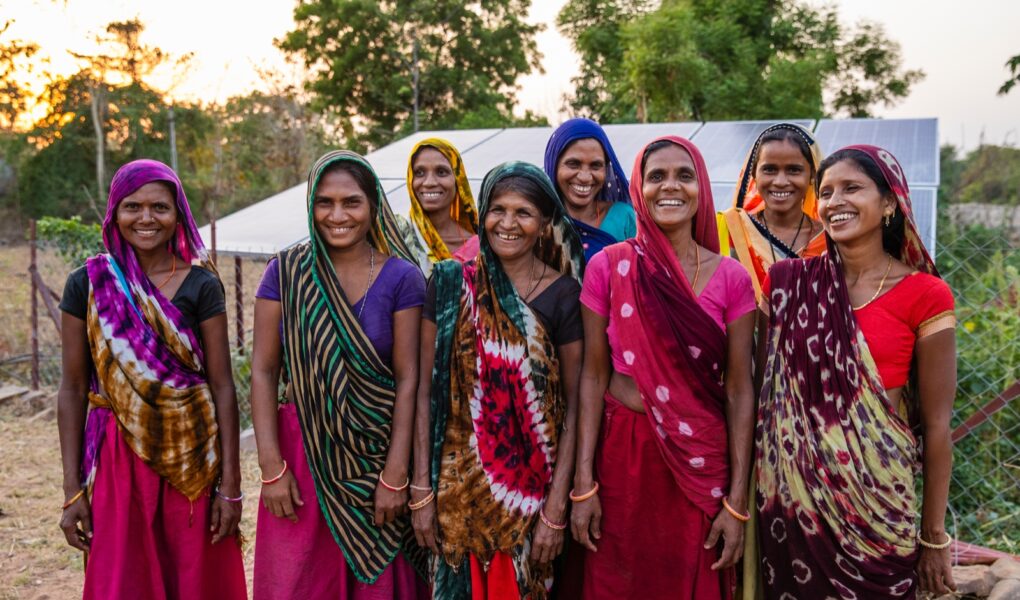India, with its vast agricultural landscape, stands as a global agricultural powerhouse. Despite employing over half of the country’s workforce, the agricultural sector contributes only 20.2% to India’s GDP, according to the Indian Economic Survey 2020-21. Recent studies suggest that India could comfortably feed its growing population and even supply global exports if it could tackle food wastage, improve infrastructure, and boost farm productivity to levels seen in other developing nations. One key area highlighted is the need for better rural infrastructure, particularly irrigation and flood control. Additionally, there is a pressing need to adopt advanced agricultural technologies.
A major hurdle in achieving these improvements is the financing of Indian agriculture. Small and marginal farmers often have limited access to formal credit, forcing them to rely on informal lenders with exorbitant interest rates, perpetuating a cycle of debt. Addressing this issue requires innovative solutions and collaborations.
Sustain Plus Energy Foundation (SPEF) and Deutsche Gesellschaft für Internationale Zusammenarbeit (GIZ). These organizations have joined forces to bridge the financing gap in agriculture. LoanXpress has partnered with Sustain Plus in enabling finance through Sustain Plus Program, titled “Financing of Technologies for Climate Resilience in Agriculture,” aligns with broader climate adaptation strategies and reinforces a commitment to sustainability.
Sustain Plus along with its promoting partner Collectives for Integrated Livelihood Initiatives (CInI) work on strengthening community livelihoods and increasing income. By deploying technology solutions to plug gaps in the value chain, this collaboration aims to foster growth in the agricultural sector.
Climate-smart agricultural technologies are at the heart of this effort. Through accessible credit, farmers can adopt sustainable practices. Innovative technologies are transforming agricultural production hubs across India. For example, Solar Irrigation Systems with Drip and Mulch use solar power to efficiently irrigate crops, conserving water and enhancing yields, which is crucial for remote areas. Biodigesters convert animal waste into biogas and organic fertilizer, supporting sustainable farming practices. Portable Solar Pumps enable small farmers to access previously unreachable water sources, vital for adapting to changing water availability. Net House nurseries protect crops and enable year-round cultivation, with promising returns on investment within two years. Solar-Powered Poultry Lights ensure consistent lighting in poultry sheds, improving chick growth and reducing operational costs. Solar-Powered Hydroponics Cattle Nutrient Producers grow cattle fodder year-round without soil, benefiting animal health and milk yield. Bio-Inputs such as Hydrogel and Non-Toxic Animal Repellent prevent animal attacks and improve soil health by fostering microbial growth. These technologies, showcased in events facilitated by Sa Dhan, involve manufacturers and financial institutions in evaluating and supporting their adoption across agricultural communities.
Adopting these climate-smart technologies offers multiple benefits: reducing carbon footprints, conserving natural resources, lowering operational costs for farmers, and increasing income through improved yield quality. Financial institutions have started to recognize the value of promoting sustainability programs, and there is a significant opportunity for others to follow suit. Lending at subsidized rates to underserved sectors can significantly boost the overall economy by empowering farmers.
This strategic partnership and implementation of climate-smart technologies mark a crucial step towards enhancing agricultural productivity and promoting sustainable practices within India’s agricultural landscape. As India continues to grow as a leader in global agriculture, initiatives like these pave the way for a resilient and prosperous future for farming communities across the nation.
By Sowdamini Bhat, CEO LoanXpress.com




